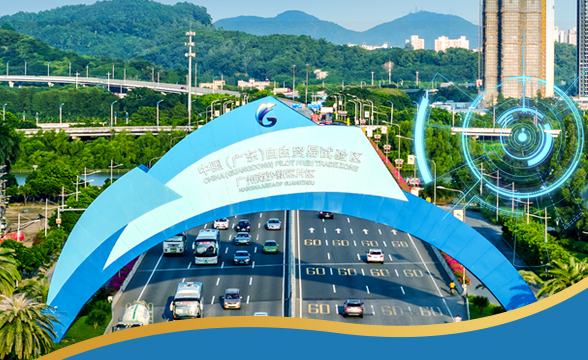Guangzhou Port: armed with black techs
Guangzhou Port Group recently completed the Internet Plus Port Logistics Intelligent Service Project, one of 13 demonstration projects supported by the Ministry of Transport, becoming a national benchmark for smart port construction.
Guangzhou Port is now armed with many black technologies just out of development.
Ocean shipping tally clerks now can work online by using a visualized terminal thanks to the AI system.
“Unmanned planes can help us troubleshoot abnormal conditions at the site and at some high-altitude facilities. We don’t need to go to hazardous operations areas anymore,” according to a technician from the bulk grain terminal project of the Guangzhou Port.
The group has been dedicated to building an intelligent port since 2017 by applying the internet, web of things, big data, AI, cloud computing, blockchain and Beidou Navigation system to the harbor service.
Through the implementation of the demonstration project, Guangzhou Port acquired two national patents and nine software copyrights, which makes handling of the export business more convenient through data sharing between customs and the port and paperless information service.
Construction of the Nansha Phase IV Project, a joint venture project started on Sept 30 of 2018, will make unmanned truck driving and container remote control a reality by 2021.
This technology, powered by emission-free lithium batteries, contributes greatly to a green and fully automated terminal.
In addition, the group signed an agreement with Huawei Technologies Co, Ltd—China’s information technology giant—at the 31st IAPH World Ports Conference this year to promote the integration of 5G tech and intelligent port construction.
All rights reserved. Presented by China Daily










